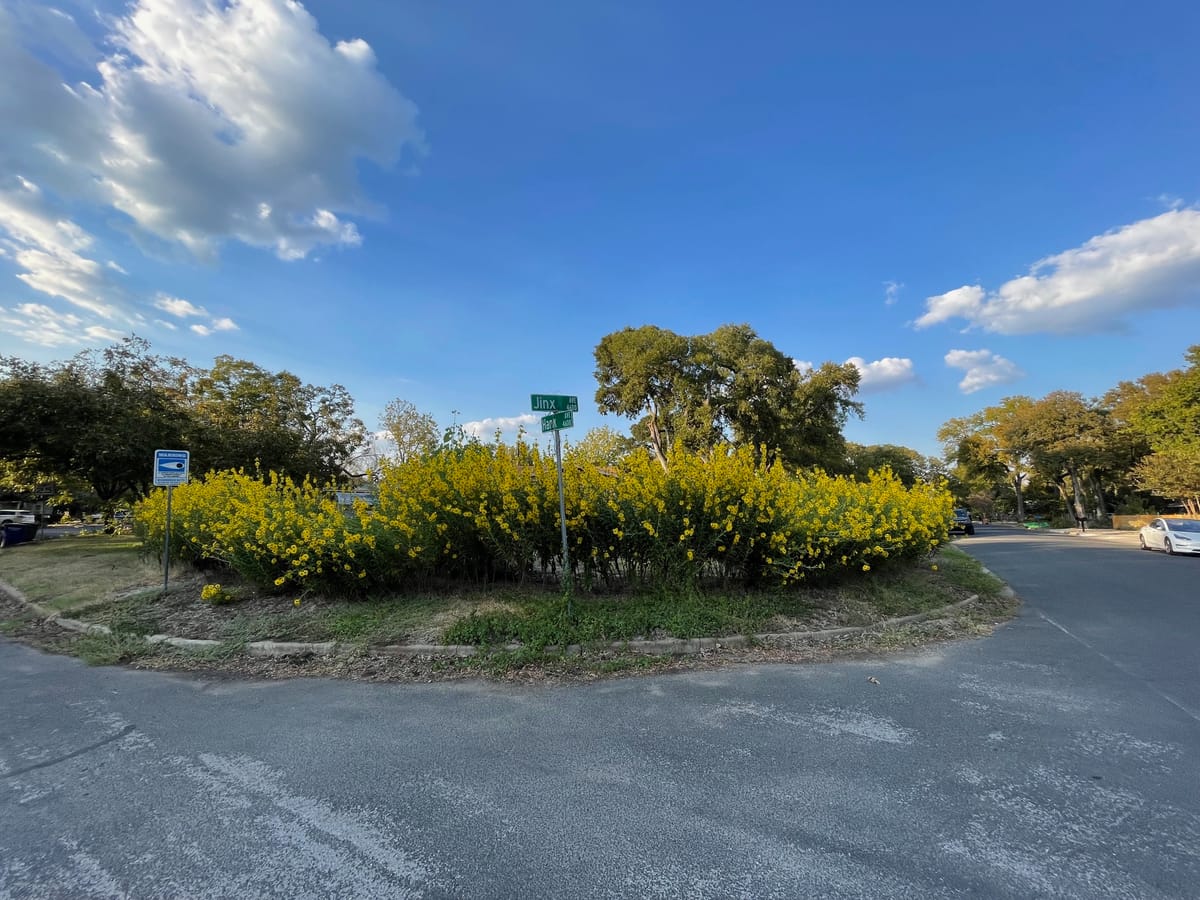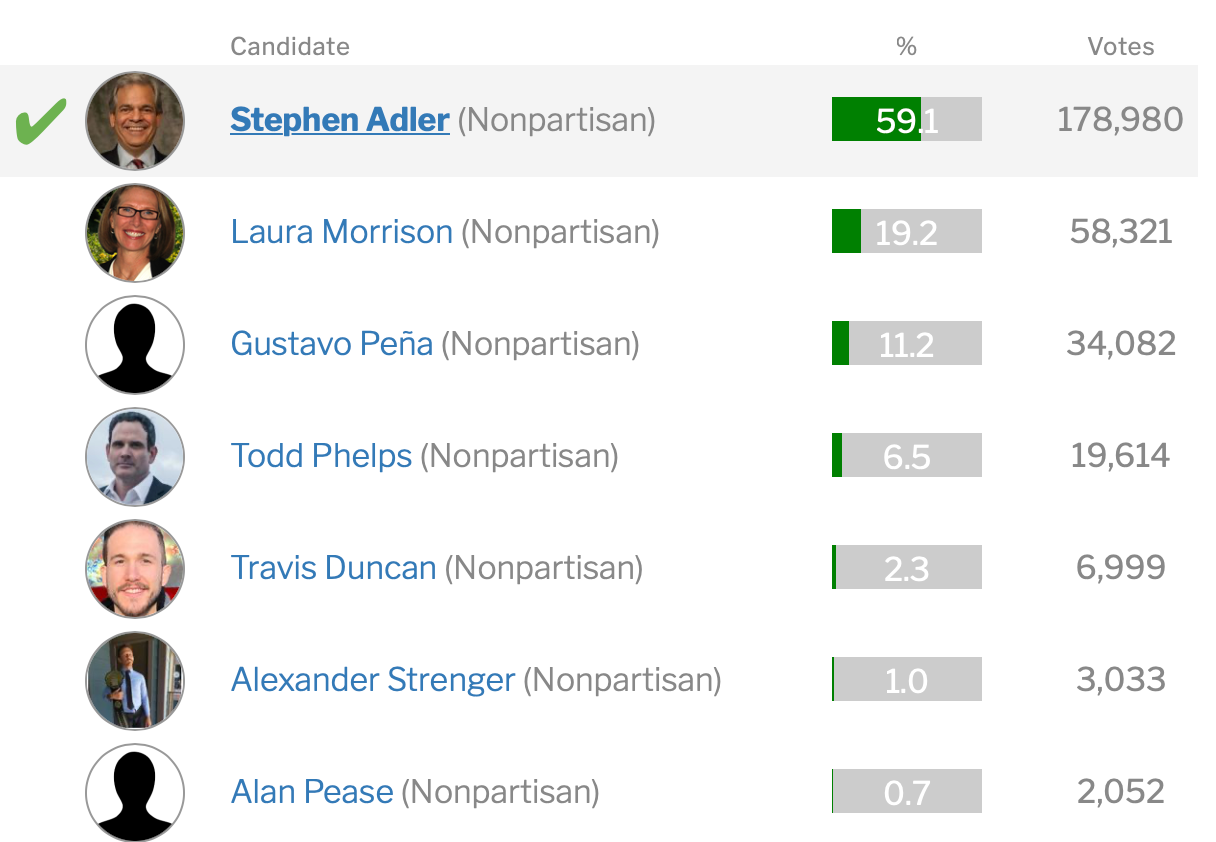Polling in the city races
Watson is way ahead, but will he avoid a runoff?

Sources have relayed to me the results of a poll conducted by the Real Estate Council of Austin on the mayor's race and four competitive City Council races. RECA spent $52,000 on the poll by local firm Baselice & Associates. Because RECA has been so protective of the information, I don't have access to the actual questions and methodology.
Above all else, the poll highlights the low level of awareness of city races. Even in the mayoral race, nearly half of voters initially said they were undecided when they weren't provided any additional information about the candidates. In Council races, the great majority of voters did not know enough about the candidates to have an opinion.
Of course, in the next couple weeks more will form opinions as campaigns contact them (doors, mailers, texts etc) or they see media coverage about the races. In an effort to project how people will react to information about the candidates, the poll provided respondents with a positive and negative bio about each candidate. It's an imperfect mechanism, but it's better than nothing.
In the mayor's race, the poll shows that Kirk Watson is way ahead of the pack but is at risk of facing a runoff.
Baseline: Watson 36, Tovo 6
Post-bio: Watson 49, Tovo 12, everyone else below 10
In Far Northwest Austin's District 6, the poll indicates that incumbent Mackenzie Kelly is very vulnerable to a challenge from Krista Laine.
Baseline: Kelly 24, Laine 18
Post-bio: Laine 47, Kelly 29
In West Austin District 10, the situation seems somewhat similar, in that the more conservative/NIMBY candidate Marc Duchen has stronger baseline numbers but Ashika Ganguly does much better post-bio.
Baseline: Duchen 17%, Ganguly 7%
Post-bio: Ganguly 38%, Duchen 24%
For what it's worth, I've heard that other polling shows Duchen poised for an easy victory, but I haven't been able to actually see any of it.
In the race to replace retiring Leslie Pool in Central/North District 7, Mike Siegel has a commanding lead but is likely going to face a runoff. All of the other candidates are virtually unknown, but what is curious is that Gary Bledsoe's bio (former NAACP president, anti-growth cred) doesn't appear to help him much.
Baseline: Siegel 18%, everyone else is single digits
Post-bio: Siegel 31%, Adam Powell 12%, Gary Bledsoe 7% ... 32% undecided
Multiple grains of salt
Hopefully the 2016 and 2020 presidential elections have made us keenly aware of the limits of polling. And in low-profile, nonpartisan races where opinion is far less polarized, a poll conducted more than a month before Election Day is probably even less predictive of the actual outcome.
All of that is to say that the RECA poll to me is useful in conveying broad strokes about the electorate's political awareness. But I would not take any of these numbers to the bank.
The other thing to keep in mind is that people will still vote in down ballot races even if they don't know anything about any of the candidates. And there are all kinds of weird reasons why a minor candidate will take a surprisingly large share of the vote.
The two obvious ones that come to mind are gender and ethnic affinity. I'm sure there are voters who favor male candidates but it is well-established that are a lot of voters in Austin who favor women candidates. And having a Hispanic last name probably helps in certain parts of town.
Consider the 2018 mayoral election, where incumbent Steve Adler cruised to reelection over challenger Laura Morrison. Morrison, a former at-large Council member, raised $130,000, had the backing of a number of neighborhood leaders and other elected officials but finished with only 19% of the vote. And yet Gus Pena, a man who periodically shows up at City Council and claims to be the president of a nonexistent nonprofit, Veterans for Progress, got 11% despite raising and spending no money and mounting no campaign. He did far better than the other unserious candidates.

Why? The simplest answer is that Peña was the only Hispanic name on the ballot. But he may have even got an added boost by sharing a first name with former Austin Mayor Gus Garcia. A huge percentage of those showing up to vote didn't have opinions about the mayoral election but still chose a name on the ballot. This year is a presidential election, so the share of the electorate that is completely ignorant of city politics will be even higher.
If somebody forwarded you this email, please consider subscribing to the newsletter by visiting the website.





